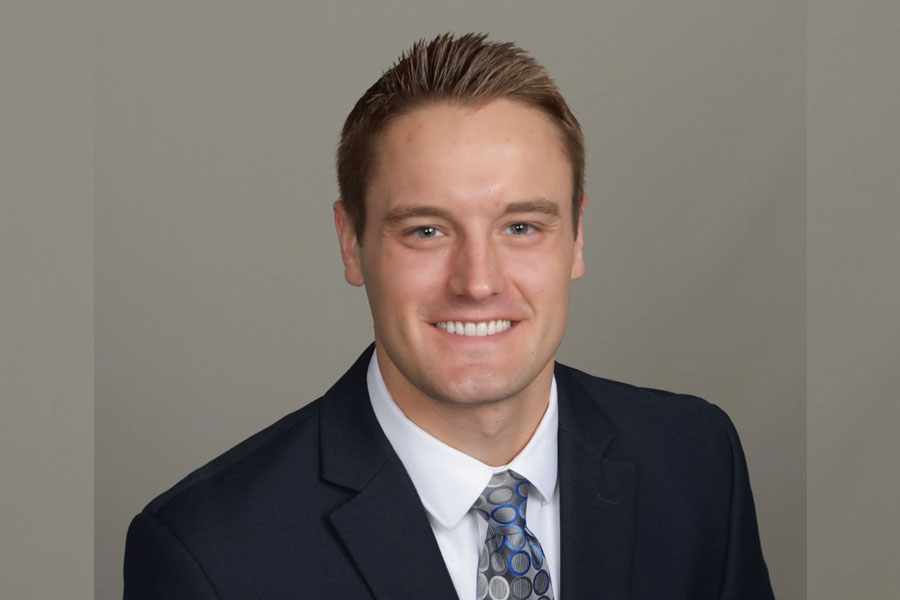What is your current role in health care?
“Currently, I am the Executive Director for Transformation Management at CentraCare, which is located about an hour outside of the Twin Cities in Minnesota. My role is to help influence and usher in large-scale change projects across our enterprise to keep us in a position where we can accomplish our mission and strategy, and continue to serve the patients of our community.”
What stands out as a favorite memory during your time as an MHA student?
“It would be the friends that I made in the program. We had a tight-knit group of friends, there were like five or six of us, and we just spent a lot of time together in-between classes and outside of school.”
How has the MHA Program helped prepare you for your career?
“I think it allowed me to see different perspectives on so many key issues in healthcare, which prepared me immensely for what I would face in my first job. The program pushes you to build a network of individuals and to reach out to individuals across the country who might be working on a similar issue or maybe have a solution to a challenge you are facing. I continue to do that to this day.”
What challenges and opportunities will healthcare leaders encounter in the next 5-15 years? What skills will leaders need to be successful in light of these challenges and opportunities?
“I think the challenge is that there are new entrants in healthcare that are going to be disruptors. So, fill in the blank whether it’s Amazon or Apple or Google or whomever, I think those organizations that haven’t always been in healthcare are seeing an opportunity to do things differently. I think the challenge for healthcare leaders who are working in a traditional healthcare setting is to figure out how to innovate and change and keep up with the incoming competition from those new entrants.
I think the biggest opportunity is to develop skills around change management and adaptive change. In a lot of these challenges we have both technical and adaptive change, and the technical change I think can be figured out. That is the easy part. Managing the adaptive change, such as leading your team in the right direction while keeping them engaged and excited about the change, is the challenge.”
If you could give one piece of advice to a current student, what would it be?
“When you are in a summer intern opportunity, or when you’re working with senior leaders, really hone in on how they’re making decisions, and how they’re arriving at the solution they did, more so than the solution itself. I think there will be solutions that will continue to change as we adapt and grow, but you can learn a lot when you observe how a leader made those decisions and how they arrived where they did. You can then apply that process to whatever challenge you might be facing.”
Why is your class the best class ever?
“The class of 2014 is the best class ever known. We were a great group that built friendships and I see that group continue to support each other even now, many years after graduating from the program. I think that’s something special.”

